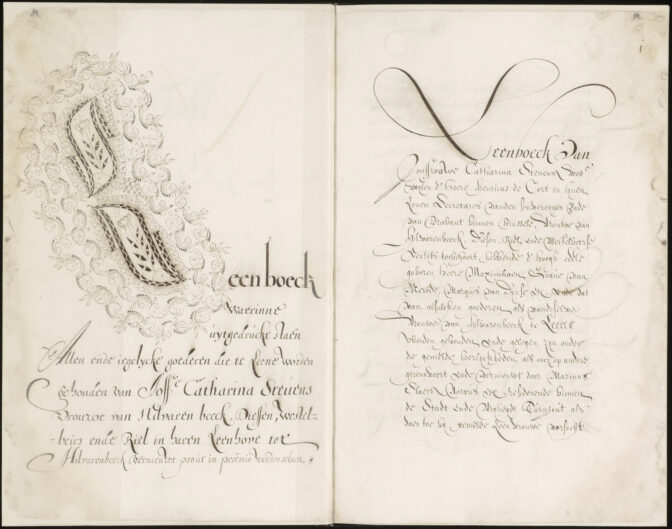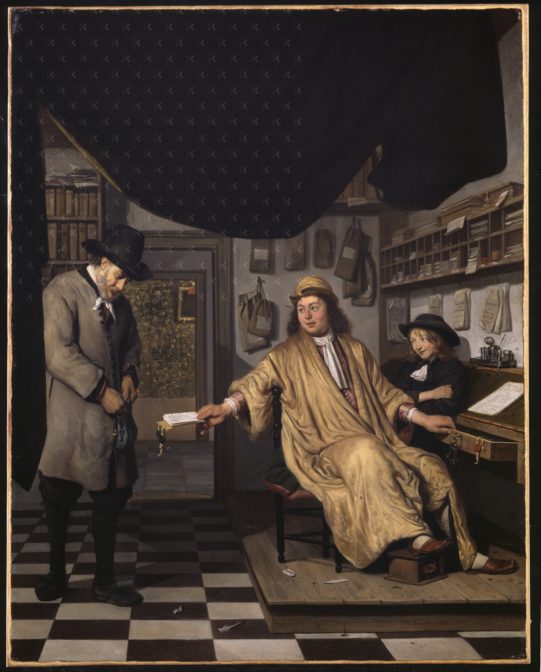Here is an overview of the new sources, websites, and projects that were announced last month.
Sources
- The Regionaal Archief Rivierenland is putting the indexed notarial records of the west of Gelderland online. The records were indexed by volunteers, and they are now being uploaded to the archive’s website.
- The finding aid for the files of people investigated by the Domestic Security Service (Binnenlandse Veiligheidsdienst, BVD) between 1945 and 1998 have been catalogued. The finding aid is now online. Information about people who may be alive has been redacted. Older records may be viewed in the reading room of the National Archives, or you can order scans for a fee.
- Several photos of records from the Streekarchief Midden Holland in have been added to HoFoDa, a website for members of the genealogical society Ons Voorgeslacht.
- Indemnity records of Zegwaart and Zoetermeer (1695-1811) are now available at the website of the Zoetermeer City Archives. Indemnity records are part of the poor administration, whereby a previous place of settlement gave a letter that they would provide poor relief if necessary (see Borgbrief).
- Marriage supplements of Zegwaart and Zoetermeer (1812-1842) are now searchable at the website of the Zoetermeer City Archives. If you find a marriage record, you can click “bijlagen” to see the supplements. Supplements after 1842 were destroyed during World War II.
- The Brabants Historisch Informatie Centrum is making the contents of their records from Noord-Brabant searchable via their website. Typed records and handwritten manuscripts are being automatically transcribed. It will take a long time to do this for all the records, but several records are already available. If you click on a finding aid that has results in the text, you will have the choice between “gevonden archiefstukken” [found records, based on the archival descriptions] or “gevonden bestanden” [found files, based on the text in the documents].
- Scans of records of the Justices of the Peace in North Holland for the early 1800s have been added to the Noord-Hollands Archief website.
- Transcriptions of church records of Echt and Horst have been added to Genbronnen.
- Several transcriptions of Beverwijk sources are available via the Museum Beverwijk (filter for Transcriptie).
- The manorial archives of ‘s-Gravenmoer, Hilvarenbeek, Loon op Zand, and Tilburg have been scanned. These are the records for the rules of the area, and includes things like town charters, tithe books, and appointments of town officials. See the bottom of the news announcement for links to the finding aids with the scans.

Fief register for Hilvarenbeek, circa 1680
Projects
- The National Register of Deceased Persons, also known as the personal record cards, has now been indexed. The index includes all people who died in the Netherlands since 1938. The Central Bureau for Genealogy, the repository that keeps these files, has decided to keep the index for their internal work processes only. This will speed up the handling of orders for copies. A Reuse of Government Information Act request has been submitted by Bob Coret, the man behind Open Archives, to make this index available to genealogists. [Source: CBG, Twitter]
- The Gelders Archief is working on improving the index and scans of birth, marriage, and death records from the province of Gelderland (1811-1960). The results will become available on their website in the coming months. [Source: Gelders Archief]
- Collectie Overijssel is digitizing various birth, marriage, and death records from Overijssel (1843-1960). The scans will become available online in 2023. [Source: Collectie Overijssel]
- Collectie Overijssel is digitizing the indexes of church records of baptisms, marriages, and burials (before 1811). They will become digitally searchable. [Source: Collectie Overijssel]
- The West-Brabants Archief is scanning all the declarations of causes of deaths in their region, the municipalities in the west of Noord-Brabant. The results will become available on their website. [Source: WBA on Facebook]
- The court rolls of Drenthe (1811 to mid 1900s) are being digitized and cannot be consulted in the reading room until mid 2023. The roll books will then be indexed.
- The Municipal archives of Schiedam are going to use handwritten text recognition software to automatically transcribe the Schiedam notarial records from the 1700s. They will become available on a separate website. [Source: GA Schiedam]

Public notary in his office. Credits: Job Berckheyde, collection RKD.
Archives
- UNESCO started a Netherlands Memory of the World Register with documentary heritage of particular importance to the Netherlands. This complements the Dutch contributions to the international Memory of the World Register. Eight archives are part of the Netherlands register, including a World War II collection of letters and diaries, the Jewish Council card catalogue, and the archives of the Deltaworks (dike system).
- The Utrechts Archief, the archives for the province and city of Utrecht, increased the opening hours of their chat service. You cannot ask questions via chat from Tuesday through Fridays from 10AM to 4PM CET.


Typo in the news about Het Utrechts Archief: “You cannot ask questions via chat from Tuesday through Fridays from 10AM to 4PM CET.” should be: “You can now ask questions via chat from Tuesday through Fridays from 10AM to 4PM CET.”.
So, just the opposite of what was stated.